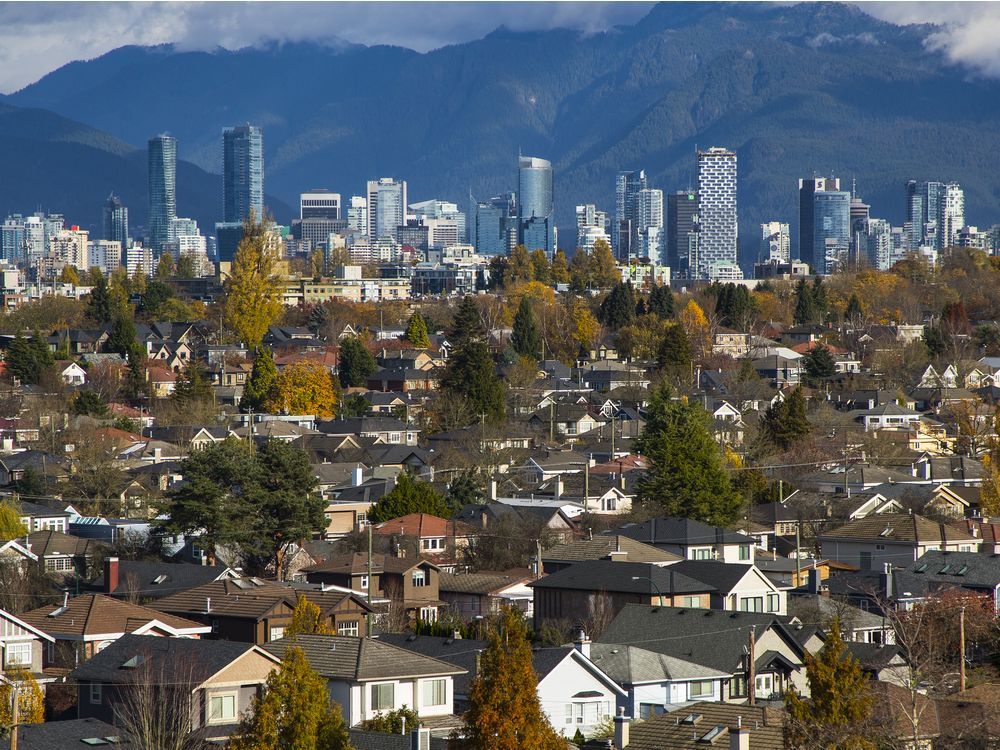Dan Fumano: Developers skeptical proposed rental-boosting policies would get much uptake

Credit to Author: Dan Fumano| Date: Sat, 23 Nov 2019 03:08:27 +0000
Some local real estate experts and developers doubt a Vancouver proposal to zone more areas for apartment building would lead to a rush of building activity.
Next week, Vancouver’s council will consider a series of moves to boost rental housing production, including allowing four-storey apartment buildings on some residential side streets off of arterial and collector roads. Their passage is not a foregone conclusion.
With the city lagging far behind its own targets for rental-housing construction, the proposed policies are being described as a move toward making some of the city’s low-density detached-home areas more accessible to more residents. But with the cost of land so high and margins so tight, developers say, it’s difficult to make these kinds of purpose-built rental projects work.
“I don’t think it’s going to open up and really produce a lot of rental buildings,” said Scott Cressey, president of Cressey Development Group, which builds and owns rental housing in Vancouver. “We’re so far behind the eight ball, we need so many more built, and this may produce a few buildings, but that’s not a whole lot.”
These kinds of rental projects might be more a bit more viable on the east side of Vancouver than west side, said Cressey executive vice-president Hani Lammam, “because land is significantly cheaper on the east side, but rents aren’t necessarily that different.”
But even on the east side, Lammam predicted not many buildings will go up.
“None of it is going to come to fruition. Because the numbers don’t work,” he said. “I just don’t see it happening.”
Local developer Richard Wittstock is also skeptical.
Wittstock’s company, Domus Homes, is trying to build an 81-unit, four-storey apartment building at Granville and 32nd Avenue, which would replace two single-family houses on 50-foot lots. But land is more expensive on a per-square-foot basis on 33-foot-wide lots, which make up much of Vancouver’s residential land.
Whether it’s on an arterial or side street, the land in 33-foot lots “is just still too expensive to make the numbers work,” Wittstock said.
Still, he said, “it’s good to open up more opportunities, and I definitely think this is a step in the right direction.”
Anne McMullin, CEO of the Urban Development Institute, said her industry association “welcomes any bold plans to increase home choices for all budgets, especially rentals, throughout the city.”
“However,” she said, “our high land and construction costs, as well as provincial rent controls, still make the economic feasibility of new rental projects very challenging for builders and their investors.”
Tom Davidoff, director of UBC’s Centre for Urban Economics and Real Estate, believes the recommended policies are a step in the right direction, but unlikely to make a huge difference.
“Of course, we should allow four-storey apartment buildings,” he said. “But there’s some question of whether they’ll actually get built.”
“Some people are probably going to say it’s going to be the Wild West and everybody’s going to go nuts building. But that’s what they said about duplexes,” Davidoff said, referring to a change made by the previous council to allow duplexes in most of Vancouver’s so-called single-family neighbourhoods.
Some people’s frightened early predictions that the zoning change would unleash a torrent of duplex development have not come to pass: Six months after the change, the city’s planning department told The Courier that uptake had been “modest” and the city had only received 35 applications to build duplexes, compared to 227 for single-family homes.
Andy Yan, director of Simon Fraser University’s city program, said there could be concerns that these zoning changes could encourage “the city’s next land rush.”
“Is this the ringing of the dinner bell for land speculators?” Yan asked.
The new apartment buildings would have to follow the city’s standard requirement that 35 per cent of units must be appropriate for families, with two bedrooms or more. But Yan questions if that number should be higher for these particular projects, in neighbourhoods which should be ideal places to raise families.
Vancouver’s assistant director of housing policy, Dan Garrison, clarified how the proposals in this week’s staff report aim to mitigate speculation, especially with the city looking to use “rental-only zoning,” a new power given to municipalities last year by the B.C. government.
“We undertook financial analysis to assess the performance of these projects. And at the proposed densities, they will not result in significant land value changes and therefore will not incentivize speculation,” Garrison said.
“The most significant anti-speculation tool being applied here will be the use of rental-only zoning. These buildings would be restricted to rental tenure. If we were proposing four-storey strata ownership projects in these areas, speculation and land assemblies would be a concern.”
Regardless of one’s opinion of the prospective effect of these proposed rental housing policies, pretty much everyone seems to agree council’s decision next week will send a significant signal, particularly as Vancouver heads into a years-long city-wide process.
But what that signal is in the eye of the beholder.